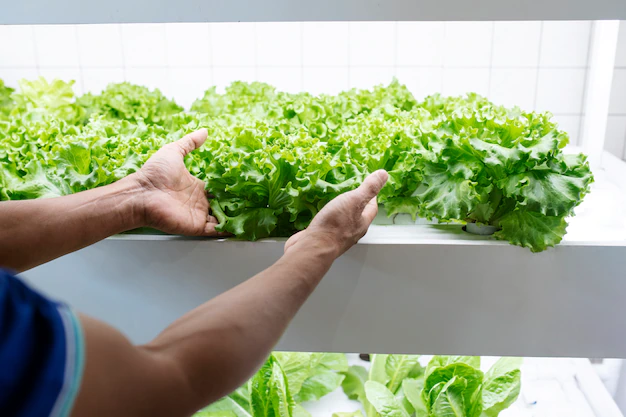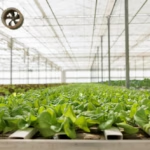Aquaponic systems offer several advantages when integrated into farming practices. Here are some of the key benefits:
- Efficient use of resources: Aquaponics combines aquaculture (fish farming) and hydroponics (soilless plant cultivation) in a symbiotic relationship. The waste produced by fish is converted into nutrients for plants, while the plants purify the water for the fish. This closed-loop system maximizes resource utilization, as water, energy, and nutrients are recycled within the system, resulting in significant water savings compared to traditional agriculture.
- Increased productivity: Aquaponics can achieve higher crop yields compared to conventional farming methods. The plants in the system receive a constant supply of nutrients, water, and oxygen, leading to faster growth rates and increased production. Additionally, the controlled environment of aquaponic systems allows for year-round cultivation, eliminating the dependency on seasonal variations.
- Enhanced sustainability: Aquaponics promotes sustainable farming practices. It significantly reduces water consumption by using a fraction of the water required for traditional soil-based agriculture. Moreover, the system eliminates the need for synthetic fertilizers and pesticides, as the fish waste provides natural nutrients, while the plants help to filter the water, reducing pollution and runoff.
- Space efficiency: Aquaponic systems can be set up vertically or in compact spaces, making them suitable for urban or limited land areas. By utilizing vertical growing techniques, multiple layers of plants can be cultivated, effectively maximizing space utilization and increasing overall production capacity.
- Diversification and income generation: Aquaponics enables farmers to diversify their products and revenue streams. They can cultivate a variety of vegetables, herbs, and fruits alongside fish production, allowing for multiple income sources. This diversification helps to mitigate risks and enhance the economic viability of the farming operation.
- Reduced environmental impact: Compared to conventional agriculture, aquaponics has a lower environmental footprint. It minimizes soil erosion and land degradation since plants are grown without soil. Additionally, the system reduces the release of greenhouse gases associated with synthetic fertilizers and decreases the use of water resources, thus contributing to environmental conservation and mitigating climate change.
- Educational and research opportunities: Aquaponic systems provide excellent educational opportunities for students and researchers. They offer a practical and interactive learning environment to study various disciplines such as biology, ecology, chemistry, and sustainable agriculture. The controlled conditions of aquaponics facilitate experimentation and research on optimal plant growth, fish health, and system optimization.
Integrating aquaponic systems into farming practices offers numerous advantages, including efficient resource utilization, increased productivity, sustainability, space efficiency, diversification, reduced environmental impact, and educational opportunities. These benefits make aquaponics a promising and innovative approach to address the challenges of modern agriculture.







